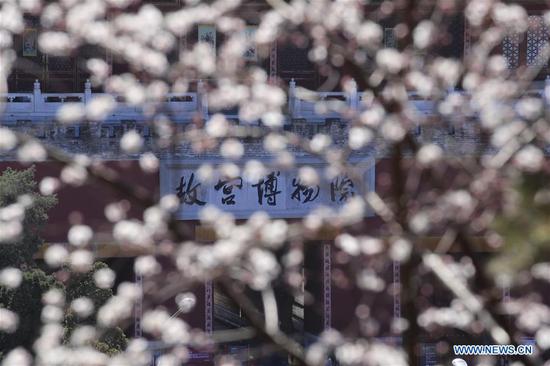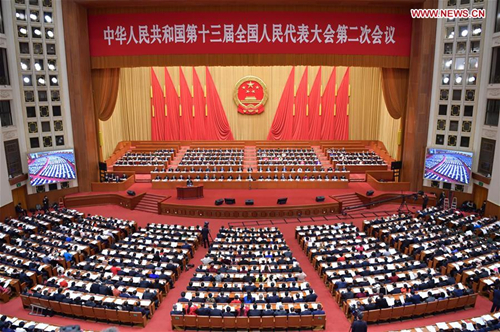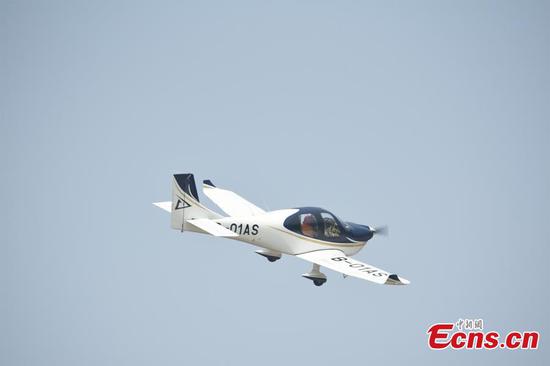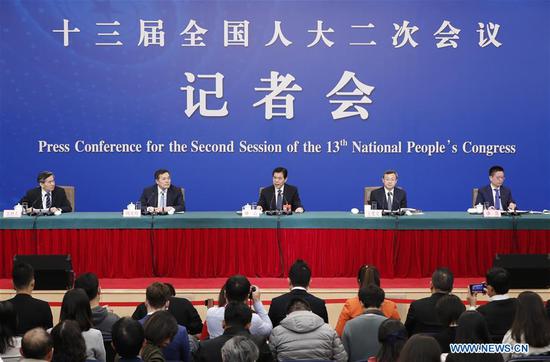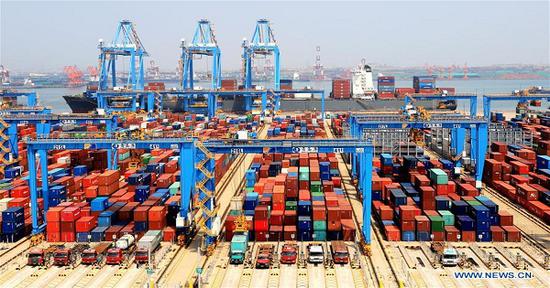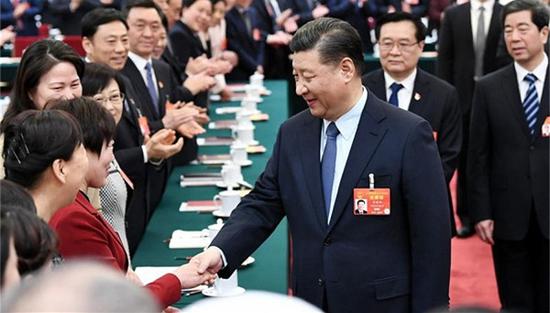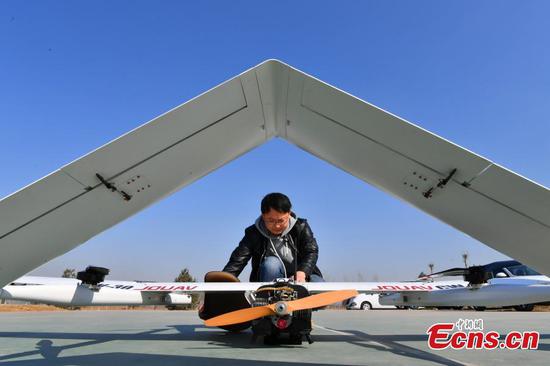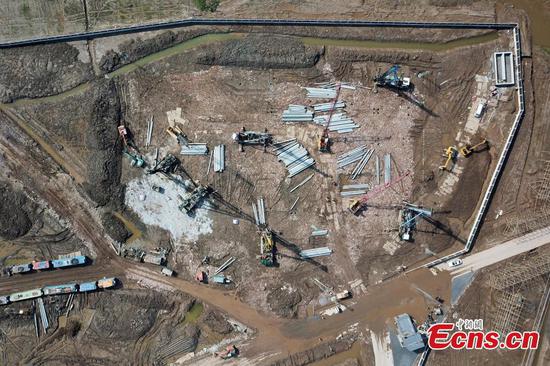
An OS-M carrier rocket in its assembly workshop. (Photo provided to China Daily)
State-owned enterprises moving over to allow competition in space market
Private enterprises play an important role in almost every facet of the Chinese economy, and now they have begun to march into a top-notch field long dominated by State-owned companies-the space industry.
The duopoly of State-owned giants China Aerospace Science and Technology Corp and China Aerospace Science and Industry Corp remains unchallenged because they are in control of the most essential part of the space business-the carrier rockets. However, private players appear to be very close to breaking the duopoly.
In the latest attempt from the private sector, OneSpace Technology, a space startup based in Beijing, announced on Tuesday that it has finished the construction and testing of its first carrier rocket, the OS-M, and is ready to transport it to the Jiuquan Satellite Launch Center in northwestern China for the model's debut mission in late March.
If the mission is successful, OS-M will become the first carrier rocket designed and built by a private Chinese company to fulfill an orbital launch.
In October, LandSpace, another private space company based in Beijing, launched a carrier rocket, the first of its ZQ 1 series, at the Jiuquan center, aiming to complete an orbital mission. However, the rocket, which carried a small satellite, failed to reach orbit due to mechanical malfunctions.
OneSpace said in a statement on Tuesday that OS-M is a type of solid-propellant rocket with four stages. It is 19 meters long and weighs 20 metric tons when loaded with fuel and satellites. The booster is able to place satellites into orbit at altitudes ranging from 200 to 1,000 kilometers above the earth.
Zhang Jie, chief designer of OS-M, said engineers have examined and tested the compatibility and stability of equipment mounted on the rocket and the launchpad. They have also verified the launch sequence, ground control and tracking procedures, he added.
Established by Shu Chang, who has been dubbed China's Elon Musk, and several companions in 2015, OneSpace Technology has carried out two successful suborbital launches of its OS-X sounding rocket and has received huge amounts of investment from the capital market. The company aims to thrive in the burgeoning commercial space market in China.
Since the beginning of China's space industry, the research and development of carrier rockets has been tightly held by State-owned enterprises.
However, in the wake of private firms' rise in the global space sphere, the Chinese government has realized that it is necessary to introduce new players to stimulate innovation and competition and to fill gaps in the market left by State-owned contractors.
President Xi Jinping has instructed the nation's long-insulated space industry to open its doors to private participants and take advantage of their participation to boost sustainable growth.
Several government departments have published policies and guidelines that encourage private enterprises to take part in space-related businesses. As a result, nearly 10 private rocket firms have come into existence in China over the past three years. OneSpace, i-Space and LandSpace, all based in Beijing, have become leading firms when it comes to research and production capabilities, as well as funding.
LandSpace and i-Space have also announced that they want to make at least one launch of their carrier rockets, but have yet to publish a schedule.













